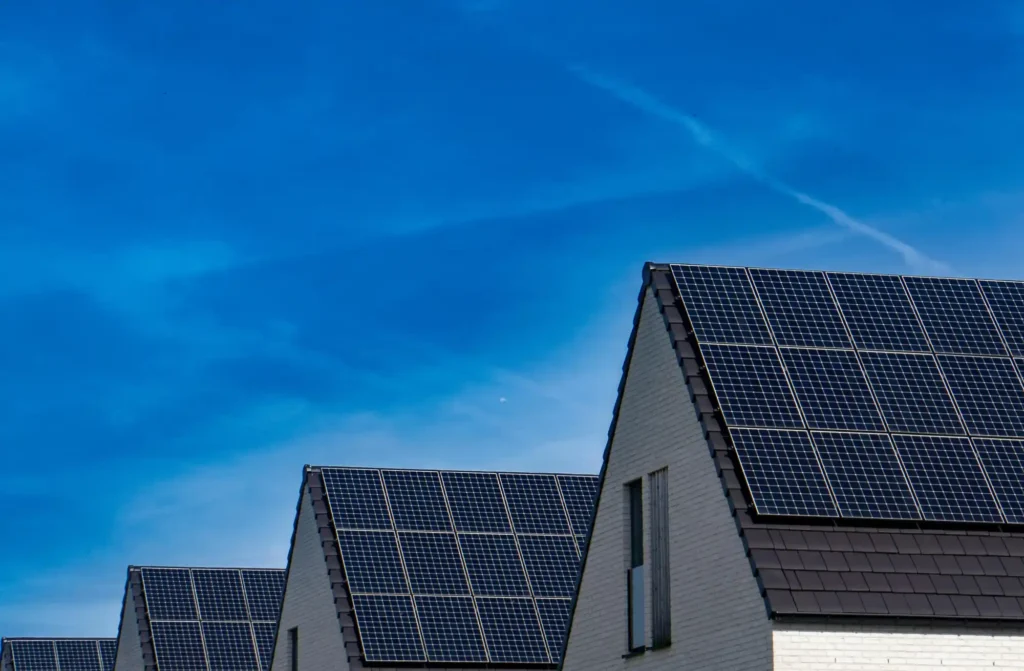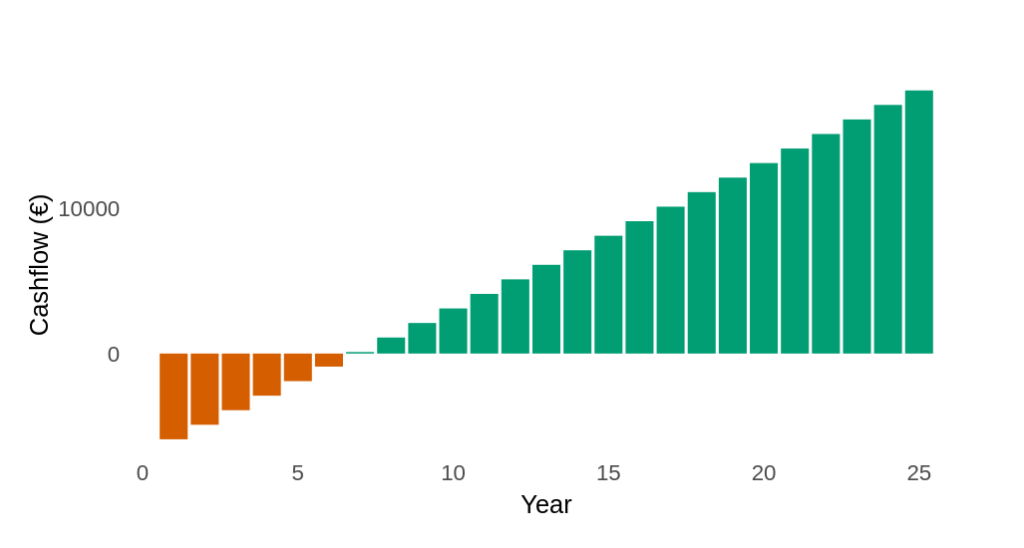Solar panels can save Irish homeowners hundreds of euro per year on electricity. But they’re not for everybody. Here’s what you need to know.

How Much Can You Save (And Earn) With Solar?
There are two ways that solar panels can benefit you financially:
- Generating your own electricity means you need fewer units of electricity from your supplier
- On bright days, you can sell surplus electricity to the grid
Exact savings and earnings depend on many factors, like the number of panels and your choice of electricity tariff. The table below gives a rough guide for a typical Irish home.
| Solar Panel System Size | Annual Savings | Annual Export Earnings | Total Annual Benefit |
|---|---|---|---|
| Small (6 panels ≈ 2.4kW) | €350 | €200 | €550 |
| Medium (12 panels ≈ 4.8kW) | €450 | €450 | €900 |
| Large (20 panels ≈ 8kW) | €500 | €950 | €1,450 |
How Much Do Solar Panels Cost?
You can expect to pay around €9,700 for a good-size (6kW) home solar panel system. The €1,800 SEAI grant can bring this down to around €7,900. The grant is available to homes built before 2021.
For a more precise estimate, click “Get a Free Quote” below.
What’s the Payback Period?
Typically between 5 and 10 years. Or looking at it differently, you get a 10%-20% annual return on investment (versus about 3% in a bank).
For a much more precise estimate, use the electricity price comparison tool, and add details of the solar panel system that you’re considering via the sliders. We recommend running the comparison several times, with different system sizes, to find the optimum for your needs.
With a lifespan of 25 years or longer, a good quality solar panel system should pay for itself many times over during its lifetime. Plus, with reduced needs for electricity from the grid, it can help shelter you from electricity price spikes, year after year.

Should You Add a Battery?
Batteries are often used to store surplus solar electricity for use after the sun goes down.
But an even better use is to charge them overnight on a cheap EV tariff (~7c / kWh), and use the stored energy to offset expensive day usage (~30c / kWh).
With this strategy, the return on investment for batteries can be very attractive (~20% per annum). The dramatic drop in battery prices since mid-2024 has also helped boost the investment case for home batteries.
A battery is also a must-have if you want to add blackout protection.
Make Sure to Switch Tariffs if You Go Solar
Solar panel owners can save hundreds extra by switching to an electricity tariff that’s optimised for both their electricity usage pattern and their solar PV system.
On the day that your panels are installed, make sure to:
- Run a custom electricity price comparison, preferably using your smart meter data
- Adding solar panels to the comparison using the slider(s)
- Switch to the best deal!
Ready for a Quote?
Click below for a free quote from a solar installer in your area